Dear friends of the theater,
In the New Year 2025, Eva Volitzer Actor’s Studio continues to offer courses that introduce students to basic practices and knowledge of acting.
We have great feedback about these courses from students who participated in them this year. Students share that they learned the elements of acting technique, which is the basis for building up a stage character. They also confess that they had a lot of fun doing the interesting etudes and improvisations as well as communicating with each other.
Mastering acting techniques is an exciting experience. Students learn how to be concentrated in public, how to develop their imagination and work on their emotions.
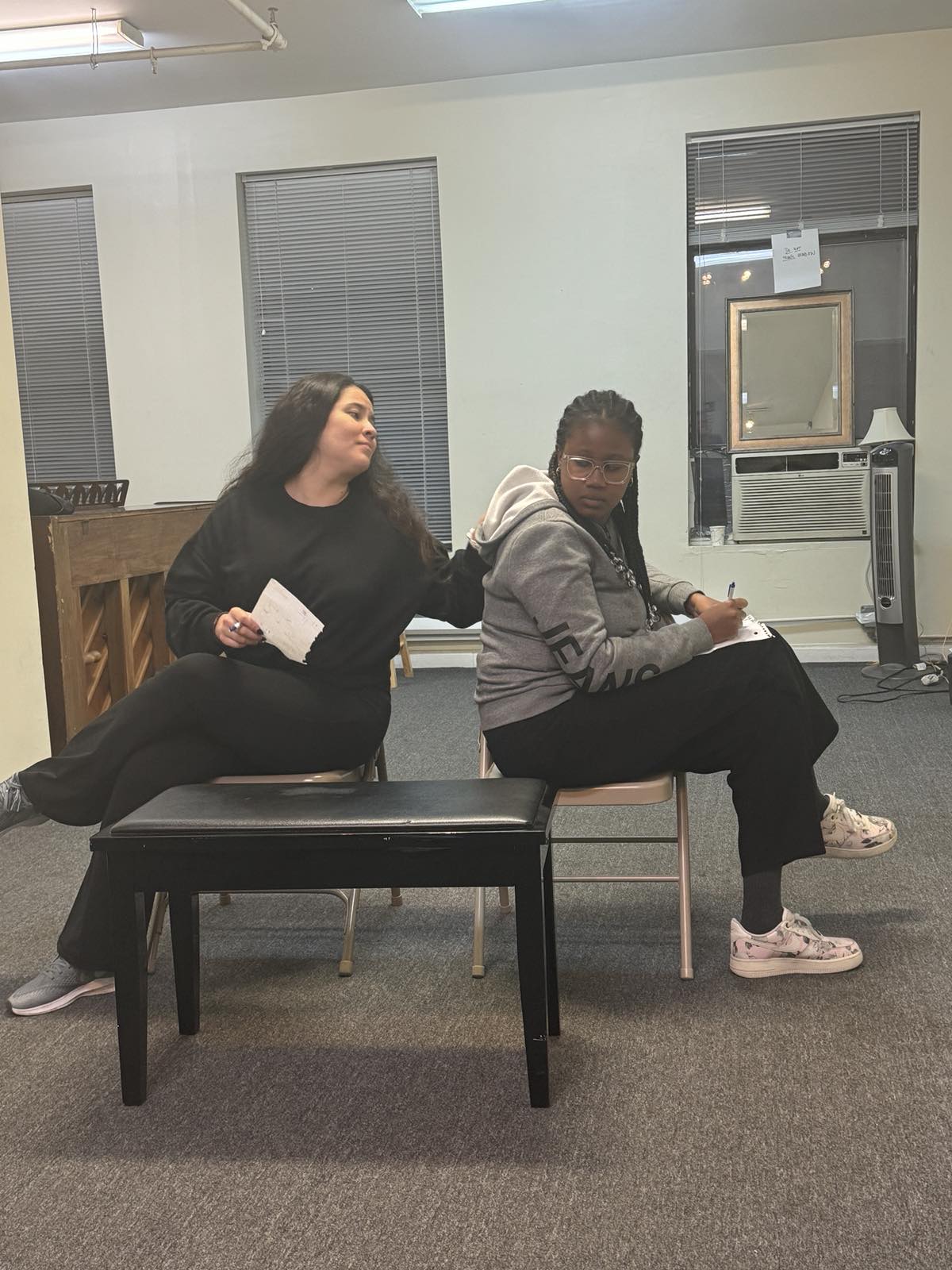
In 2025, Eva Volitzer Actor’s Studio offers a new course 5 WEEKS ACTING PART TWO: SCENE STUDY AND REHEARSAL which will start in April and which includes more hours of work within 5 weeks.
In the course students will rehearse optional scenes from plays by Chekhov, Tennessee Williams, Neil Simon. Students will learn how to analyze a play and how to build up a stage character.
I would be happy if you would browse our website, hear feedback from our students, and see numerous photos from our acting practices.
I look forward to meeting you in 2025
Happy Holidays!
Eva
In the acting classes I teach, there are students who do not know each other. However. within an hour, they get closer working together on various interesting exercises and games for developing their attention and concentration. They also participate in practices for imagination, perception and observation, interaction with a partner, etc.
In the current Fundamentals of Acting class, October/November 2024, students of a wide variety of ages are trained. The oldest participant is 65 years old, and the youngest one is 18 years old. At first glance, this seems odd, but in fact it is not. The attendants are united by the interest in acting and acting training.

The exercises and theater games bring the participants together. They not only have a lot of fun, but also learn the basic elements of acting technique.
Two of the participants in this class are actors! Many actors who perform on the professional stage return to acting training classes to refresh their skills. It was the same in the previous class, when I worked with a professional actress as well.
In addition to actors in acting classes, there are also people with different professions united by the desire to learn more about theater and acting skills.
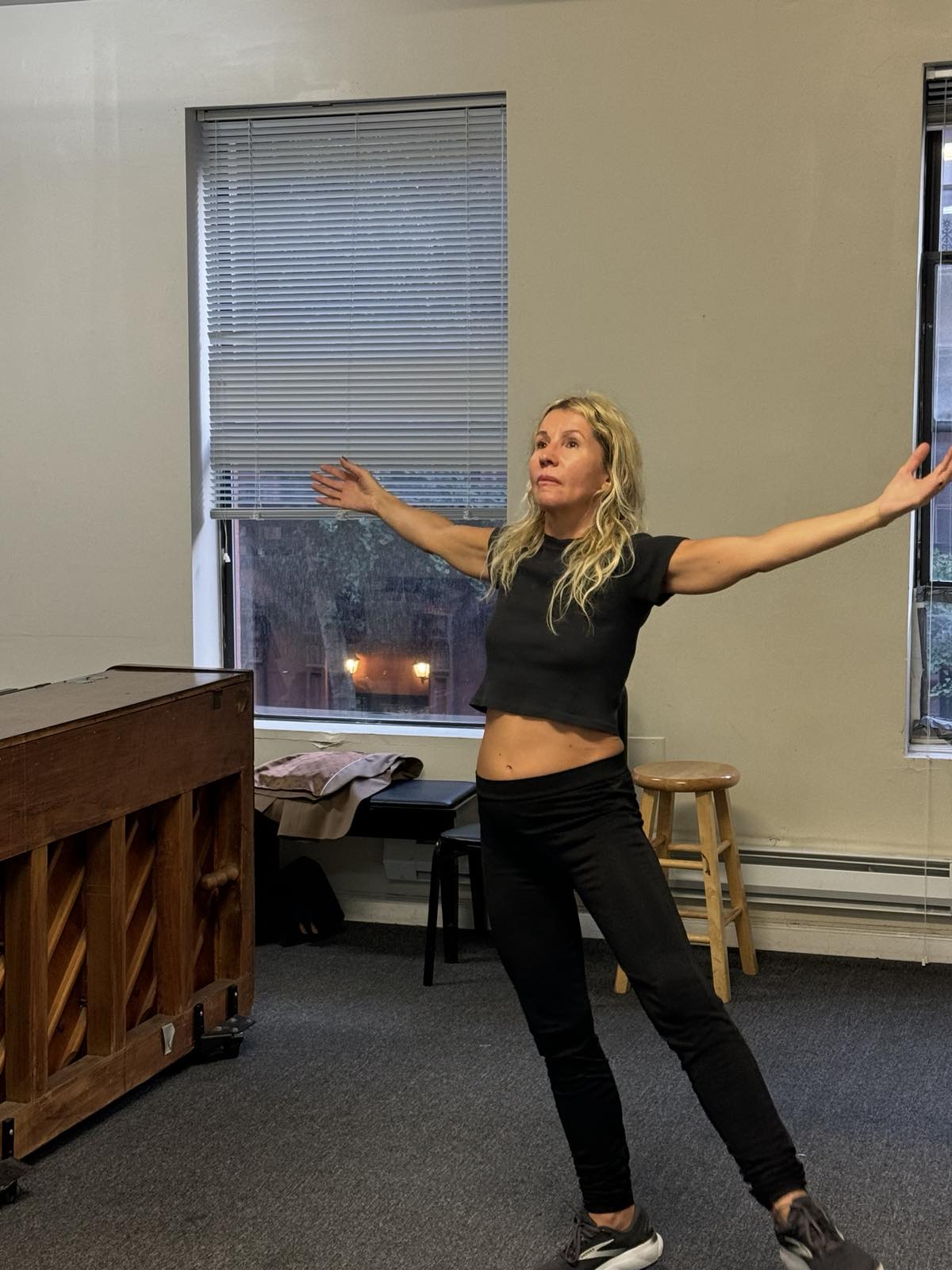
It is a joy and satisfaction for me to teach acting training.
Actor training promotes the development of personal qualities.
EVA VOLITZER ACTOR’S STUDIO
Interview of journalist Denis Nikiforof with Eva Volitzer
Denis Nikiforof:
I completed my acting studies in the class of Eva Volitzer, an extraordinary person, actress, director and teacher who I am proud to be lucky enough to know. I remember with great pleasure all the exercises, trainings and rehearsals we did for more than 4 years. Eva is a professional who manages to develop the talent of anyone who has the desire for it. I participated in many of her performances, sketches, stories and training sessions. All this has built me up a lot as a person. To date, I combine what I have learned with journalism, podcasting and psychology. Training with such a professional as Eva is more than opportunity and luck. I am very happy about the creation and development of the EVA VOLITZER ACTOR’S STUDIO in New York, because as one of my colleagues says: whoever studies with Eva becomes an actor, and the theater builds us first of all as individuals, that’s why my first question in this interview with my leader on the theatrical stage is connected with the activities of EVA VOLITZER ACTOR’S STUDIO, New York.
Denis Nikiforof:
What type of training do you conduct?
Eva Volitzer:
Dennis, first of all, thanks for the kind words about our acting classes. At Eva Volitzer Actors’Studio, we have courses to build basic techniques and skills in acting training as well as rehearsals and analyses on texts and scenes from Anton Chekhov’s plays, modern American drama, such as Nee Simon, etc.. Upcoming Shakespeare course presentation: analyses and rehearsals of dialogues and scenes from several comedies and tragedies by the great playwright.
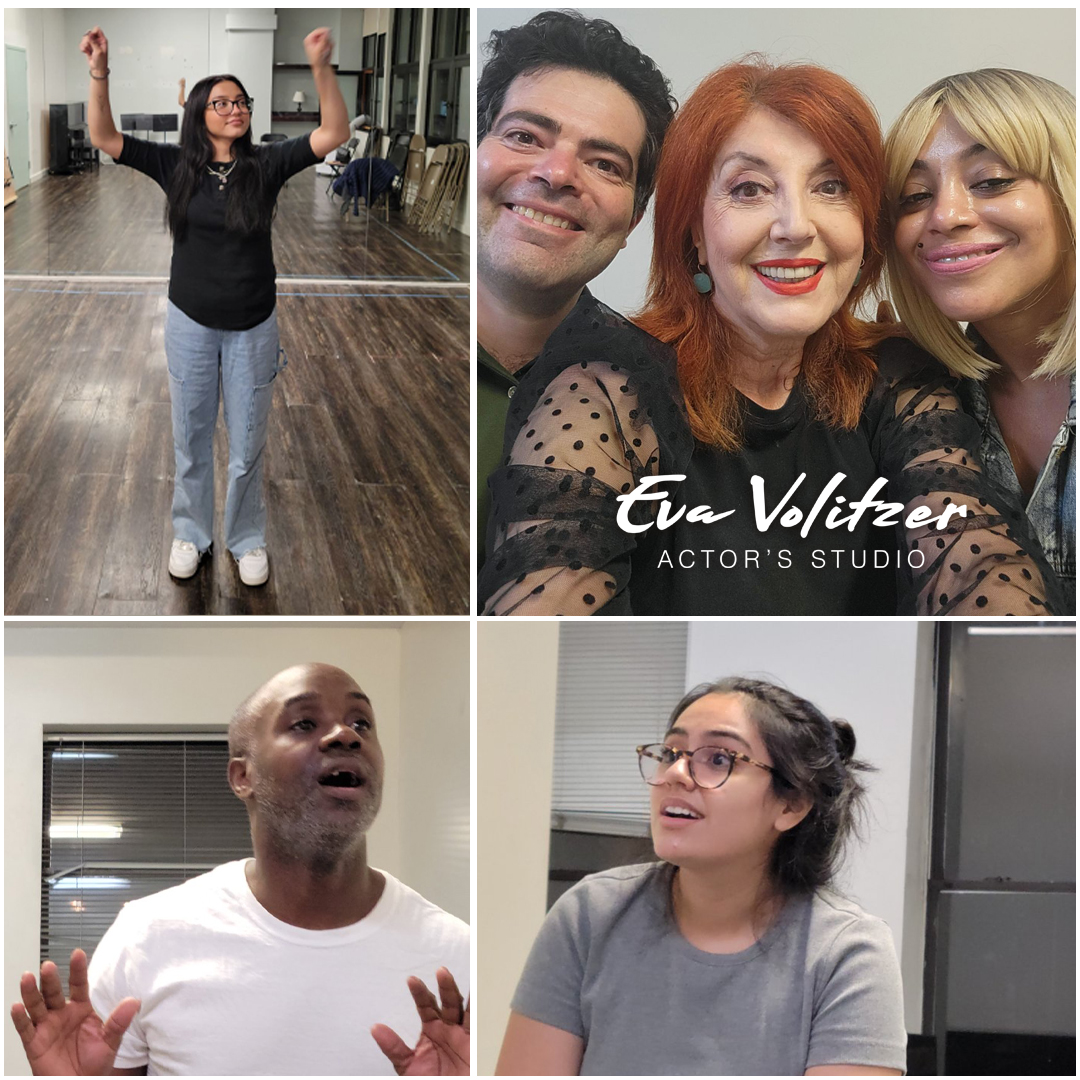
Denis Nikiforof:
Who are the training sessions and courses suitable for?
Eva Volitzer:
There are no age or experience restrictions for our courses. The students are both: actors who want to refresh their smarts, especially after the two years of closure during the pandemic, and participants who want to practice acting training and develop personal qualities that everyone needs: concentration of attention, deepening and expansion of imagination, logic, skill of persuasive presence in the conditions of publicity, relieve from muscular tension, etc.

Denis Nikiforof:
Does a person need talent or rather motivation and effort to become an actor?
Eva Volitzer:
Talent, as the great creator of the Method Konstantin Stanislavsky used to say, is one percent, and ninety-nine percent is work.
Denis Nikiforof:
What does the practice of acting teach us and what qualities does it develop?
Eva Volitzer:
Acting training develops personal qualities and skills: to know what we want on stage, but also in life, what goals we set for ourselves and how to achieve them! The most important thing is to act in the direction of achieving a certain goal. Acting rehearsals on scenes teach how to analyze the behavior of the individual characters, how to explore characters, motives for action, emotional progression of feelings, etc.
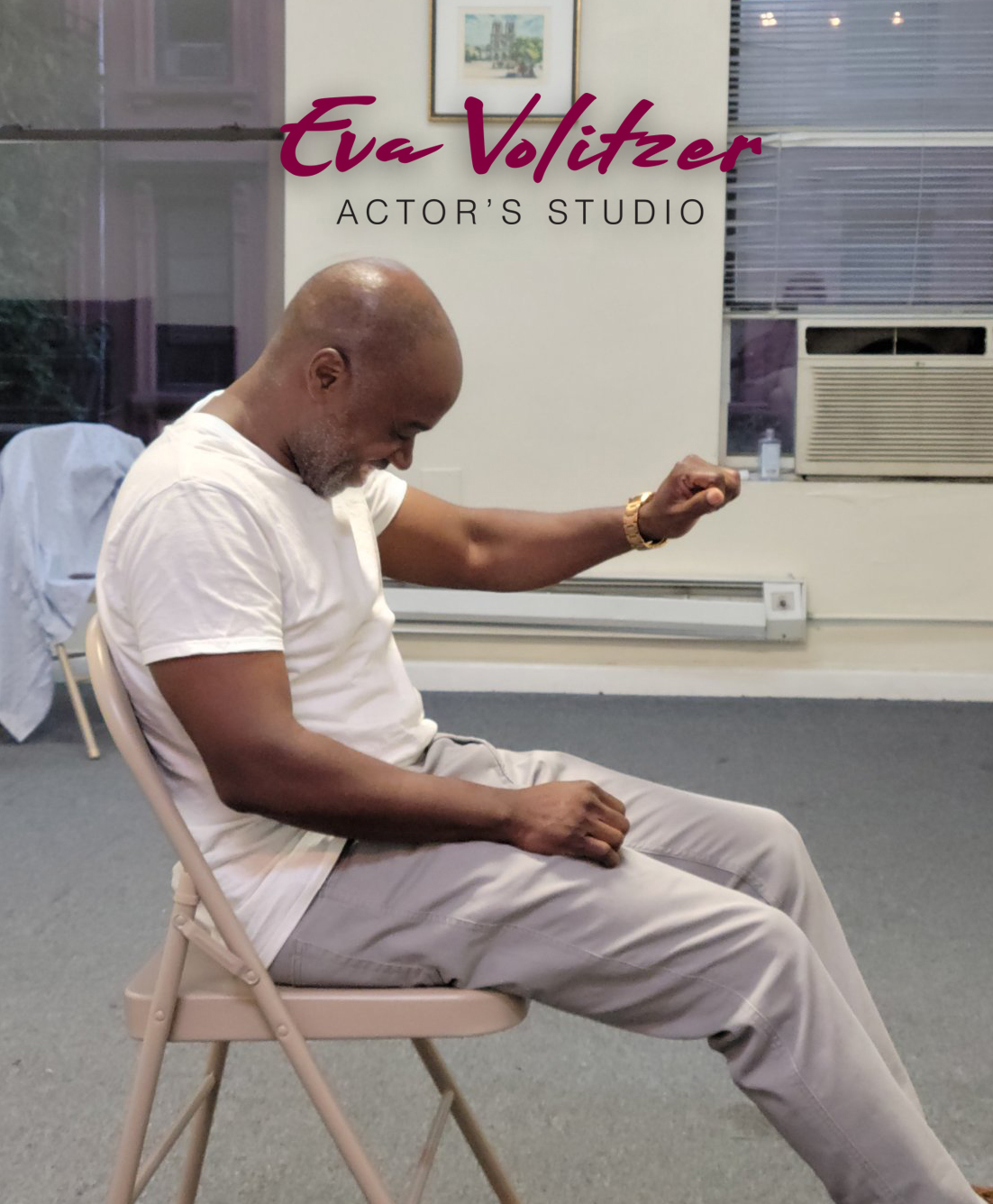
Denis Nikiforof:
Eva, tell us a little more about the creative process of your students?
Eva Volitzer:
The training of our students in the acting courses follows certain steps and build-up. We start with theoretical lectures on each element of the acting technique, and then we implement practices, improvisations, sketches. A very essential part is the personal creativity of each student. After a certain time of mastering the individual elements of the acting technique, we encourage each student to create personal creativity: a stage sketch, an improvisation, a text. Thus, our students also advance as actors. We also work on monologues and scenes by playwrights, analyzing actions, circumstances, motives and characters.
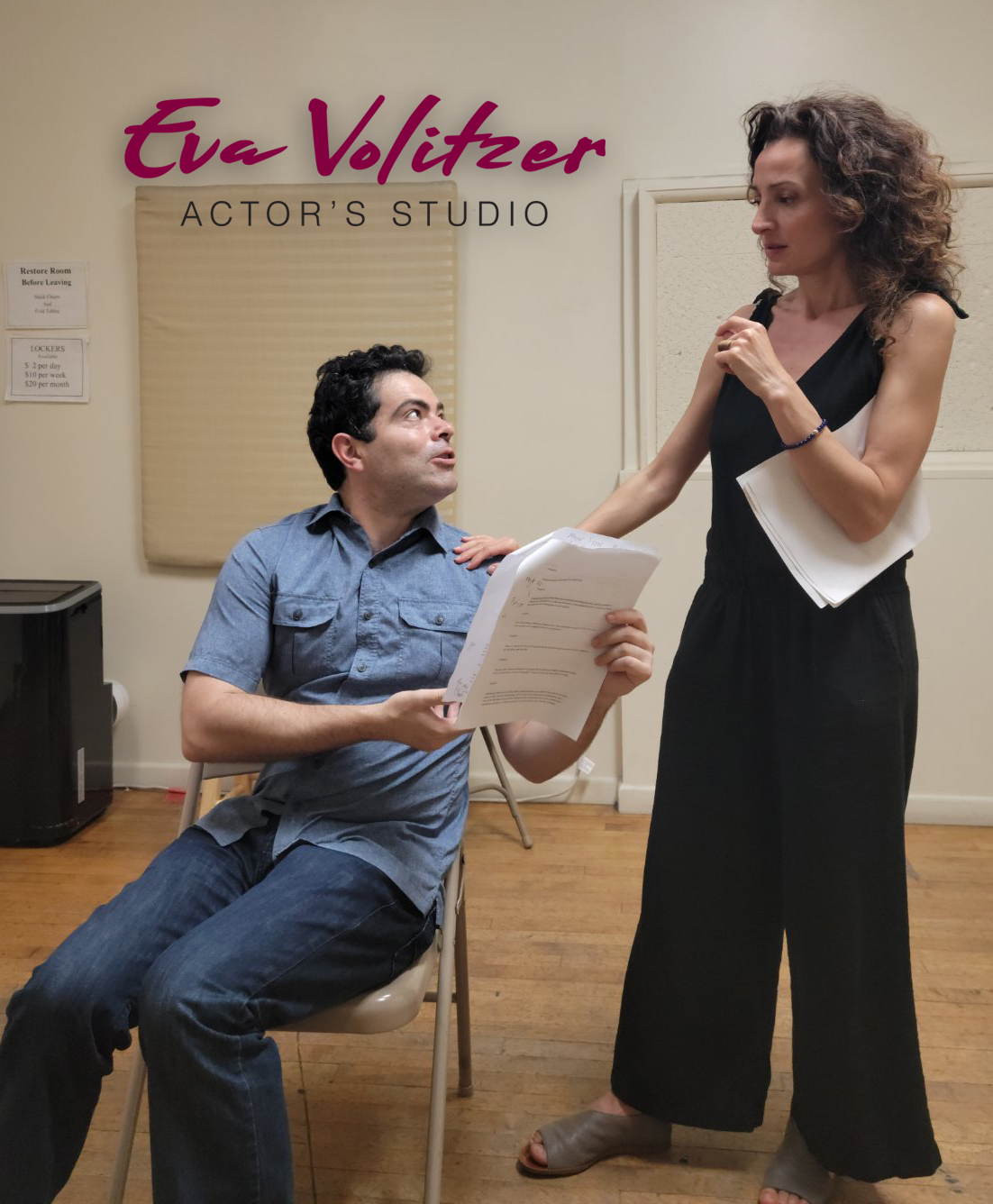
Denis Nikiforof:
How can one become a part of EVA VOLITZER ACTOR’S STUDIO?
Eva Volitzer:
On the website of EVA VOLITZER ACTOR’S STUDIO www.evastudio.org
Upcoming courses are published with a description of the contents of each course. Anyone can view it and sign up.
Coming next 6 WEEK ACTING TECHNIQUE CLASS.
Denis Nikiforov: Eva, Thank you for this interview! I wish you good luck!
Eva Volitzer: Dennis, I also thank you for your interest in the activity of EVA VOLITZER ACTOR’S STUDIO!
In a short period of time Eva Volitzer Actor’s Studio has gained new friends and fans. We carried out online and in-person classes which drew a lot of interest.
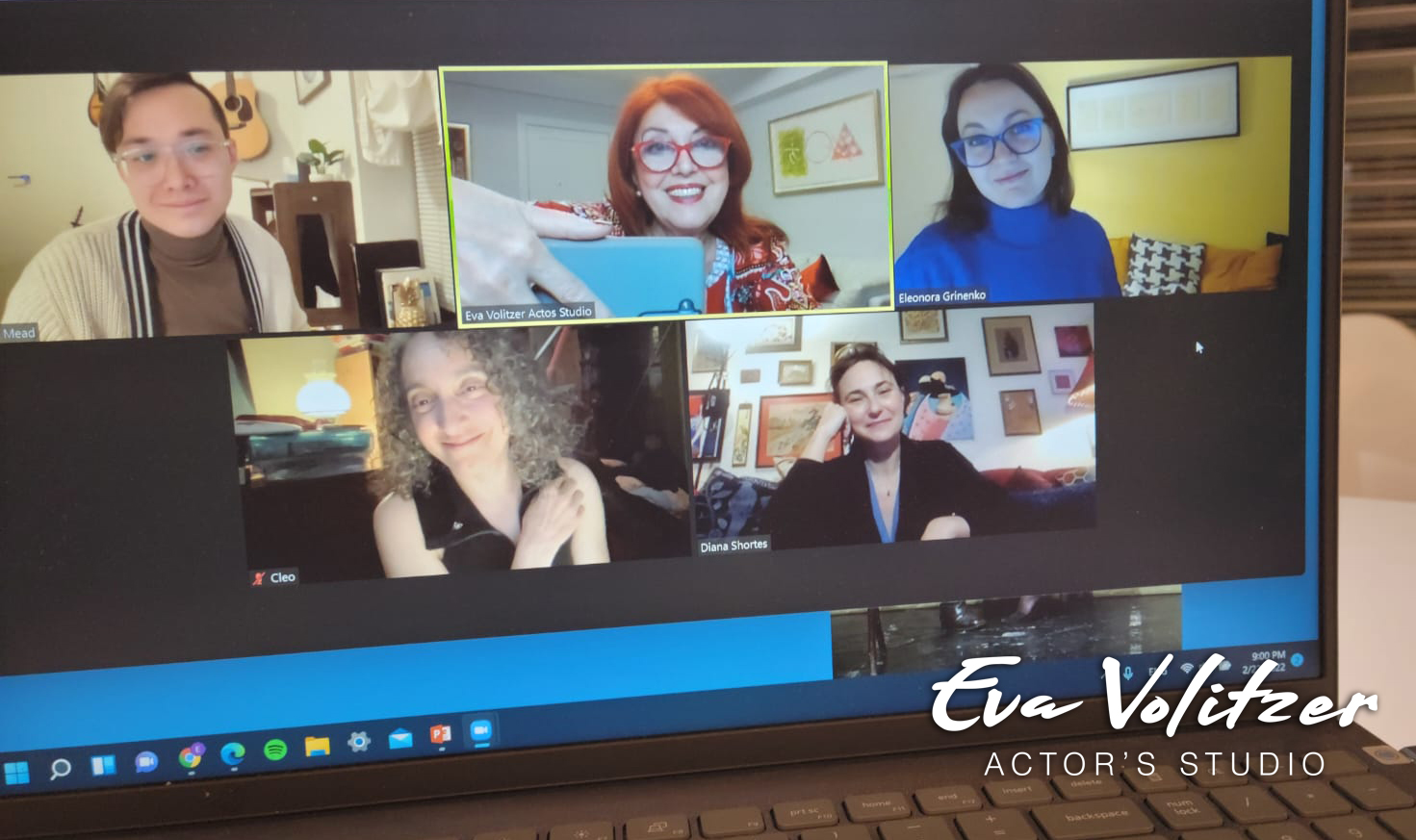
The online classes focus on those participants who live outside of New York and are not able to attend in-person classes. Such a successful class was the master’s class on A.P. Chekhov’s works and his emblematic work ‘The Seagull’. The students and actors from different towns participated on the virtual stage. The active analysis on the separate dialogues provoked lively discussions, questions, interpretations and opinions. After the theoretical part, we rehearsed three scenes from ‘The Seagull’: Treplev and Nina; Arkadina and Treplev; Treplev and Nina. It was quite exciting.
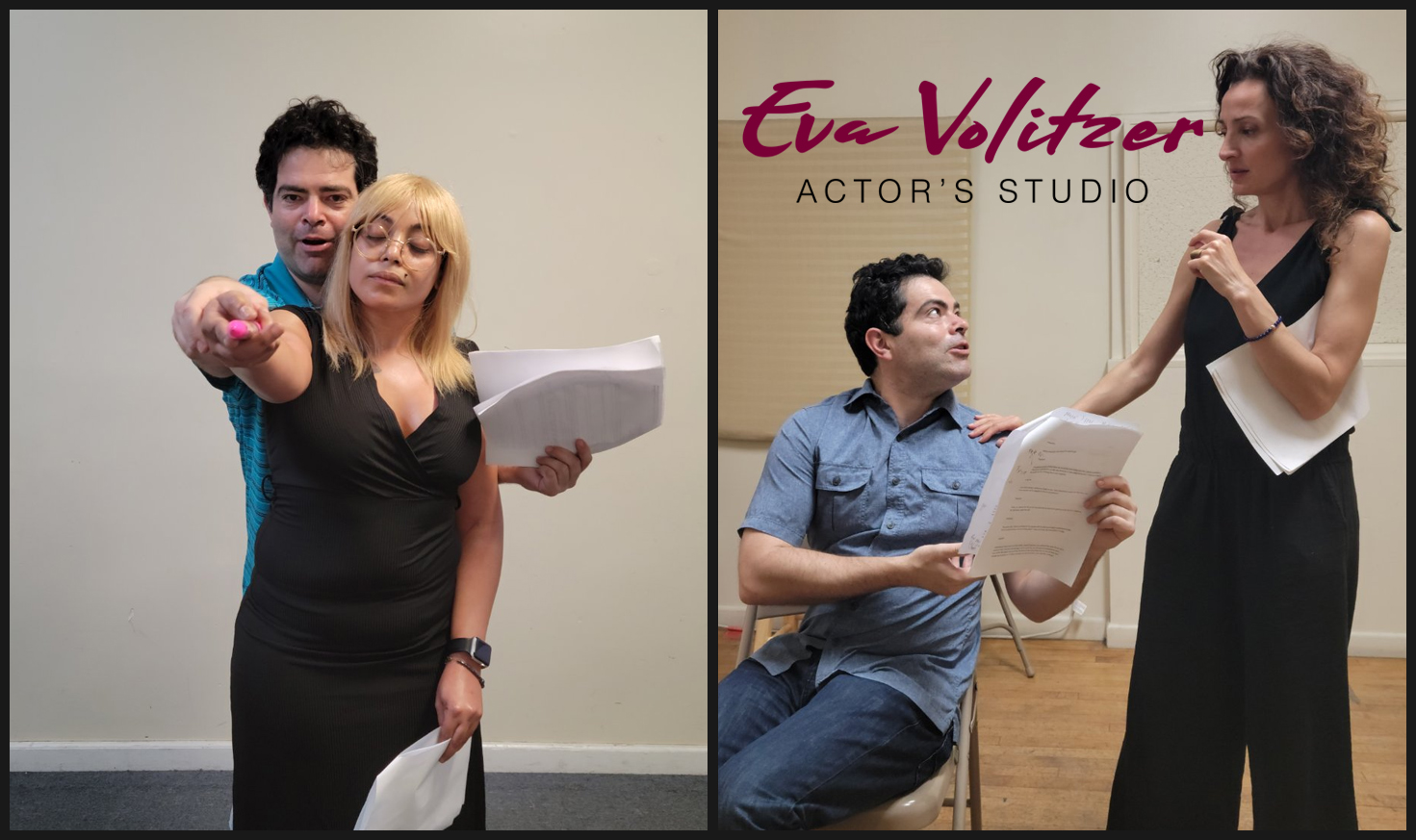
The in-person classes were very successful, too. The fundamental acting practices are extremely constructive not only for the actors but also for all who want to develop their own personal abilities such as concentration of attention, vast imagination, courage and determination, muscle control and a lot of others.
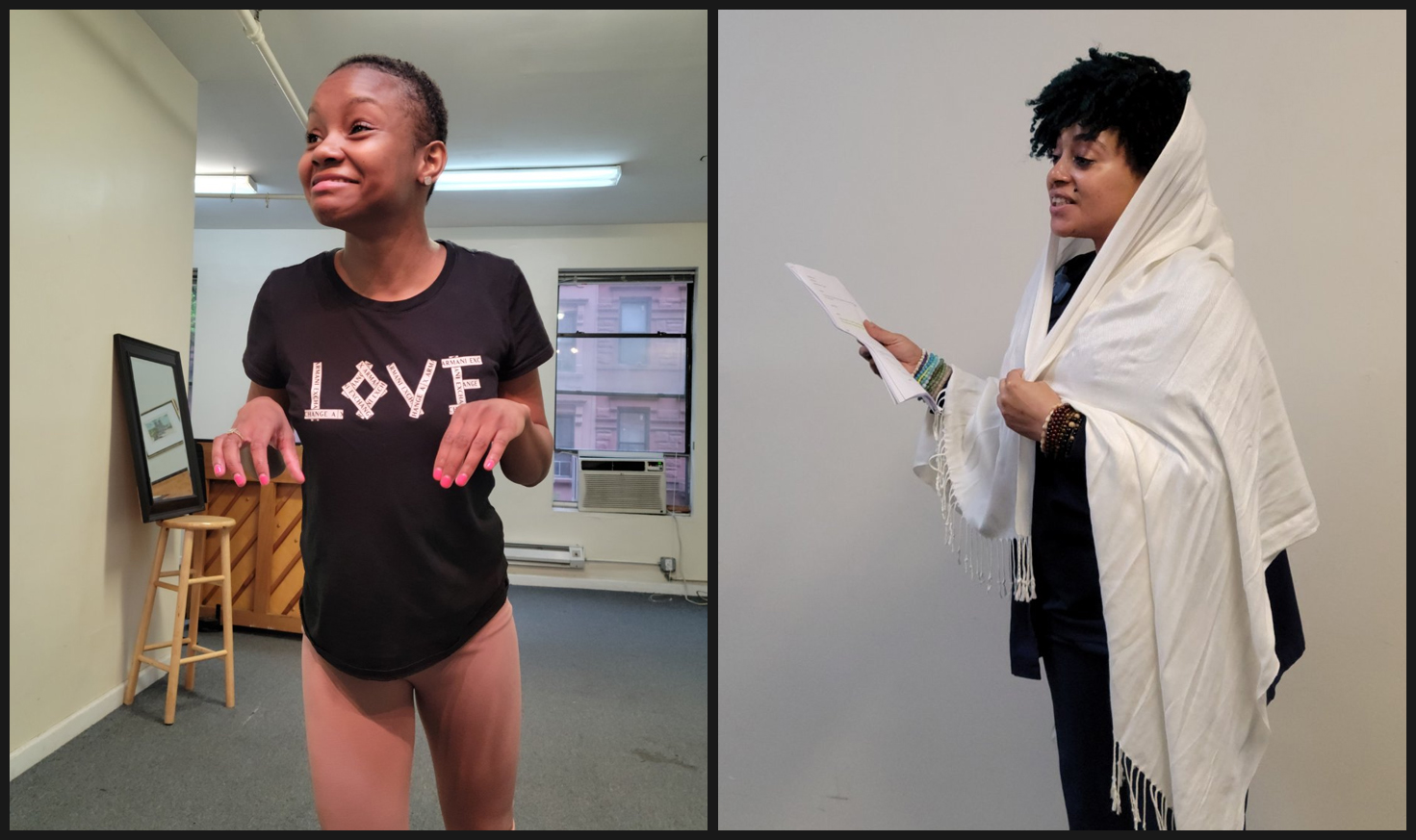 Some of the participants were so overcome by the acting practices that they entered for the course again. With them we performed a short scene by Neil Simon as well as the comedy ‘Bear’ by A. Chekhov.
Some of the participants were so overcome by the acting practices that they entered for the course again. With them we performed a short scene by Neil Simon as well as the comedy ‘Bear’ by A. Chekhov.
The autumn courses have already been posted on our site and we enjoy a lot of interest. I offer online and in-person classes again and we have already started practices with the first participants.
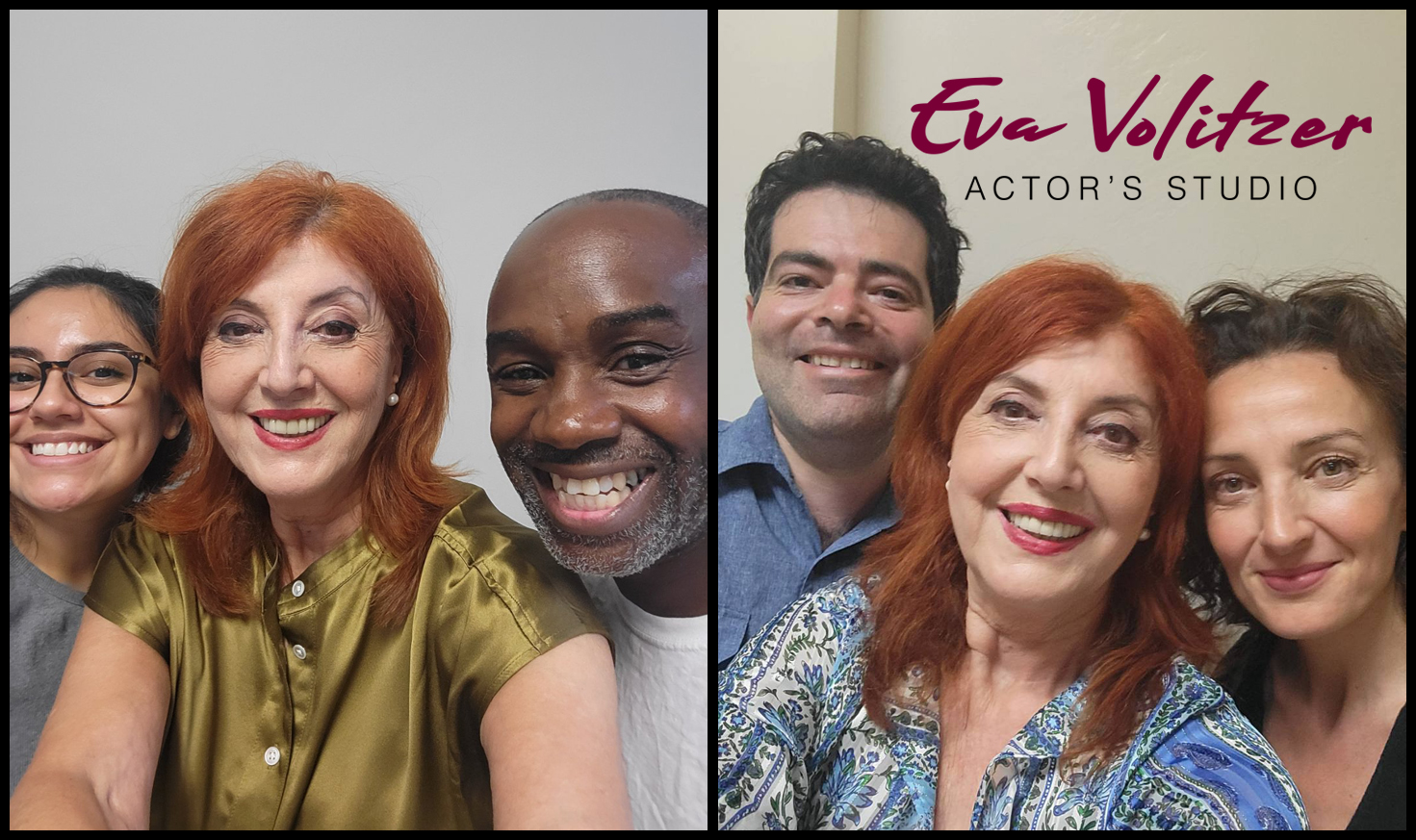
See and learn about the suggested classes on www.evastudio.org. I am sure, you’ll find your class.
Looking forward to seeing you, friends!
Yours, Eva
Acting technique
It was a great pleasure and joy to teach in person the Acting technique course in as well as to practice together various exercises on concentration, imagination, the five senses, emotional memory, muscle control, etc.
Daisha, my student, participated in the sessions with enthusiasm for four weeks, two hours per week.
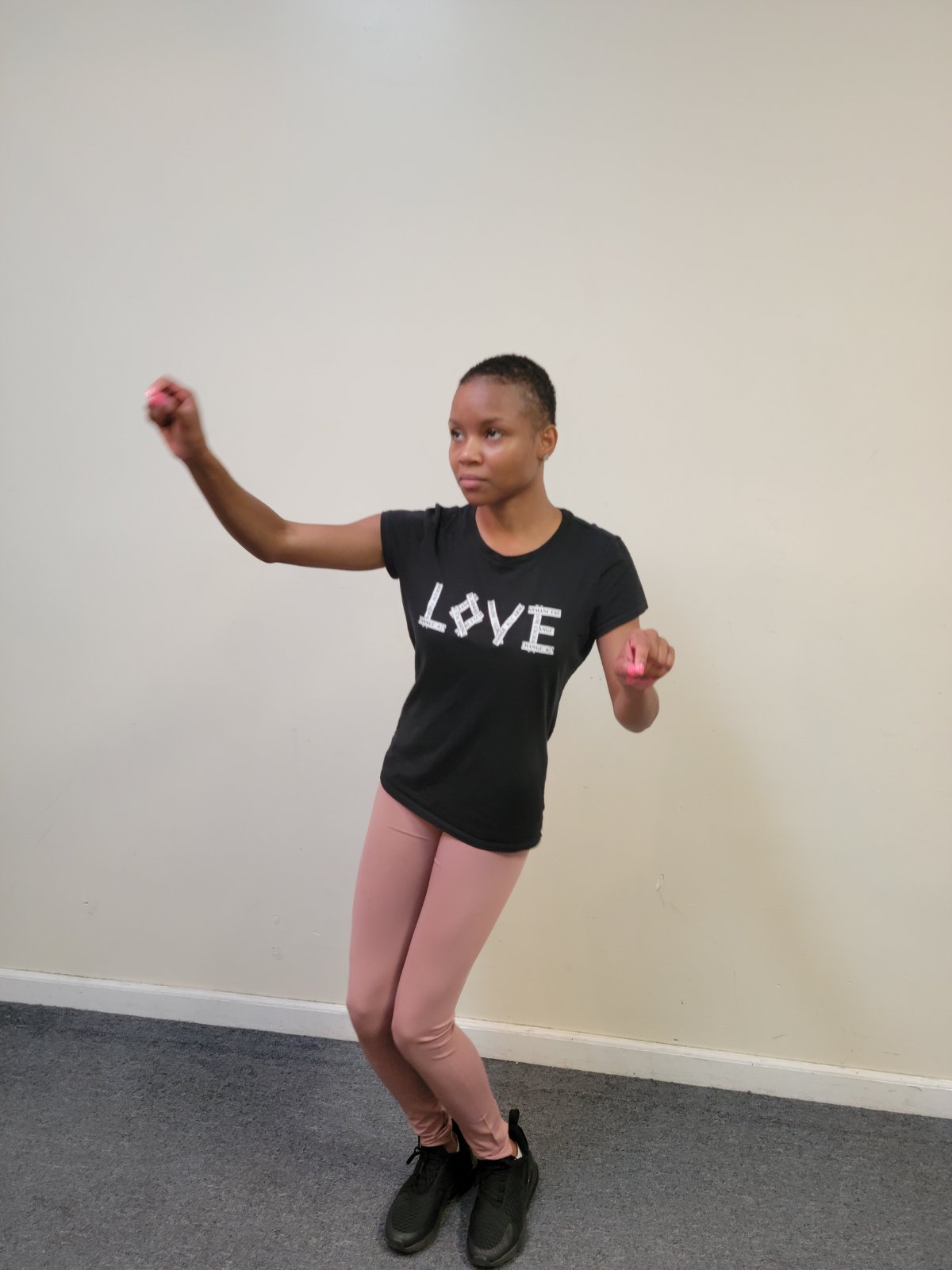
Daisha entered the acting technique course because of her interest and wish to learn more about the acting technique and the actor. She has a good education, accounting, but acting practices, which are fundamental, develop various personal qualities successfully.
Acting technique is useful not only to the actor but also to all who are not actors but want to be aware of their level of concentration of attention, to expand their imagination, to know their goals in life and on stage, to act effectually and to learn more about themselves. At the end of the course, when Daisha received her special certificate, she confessed to us her satisfaction with the work on acting technique.
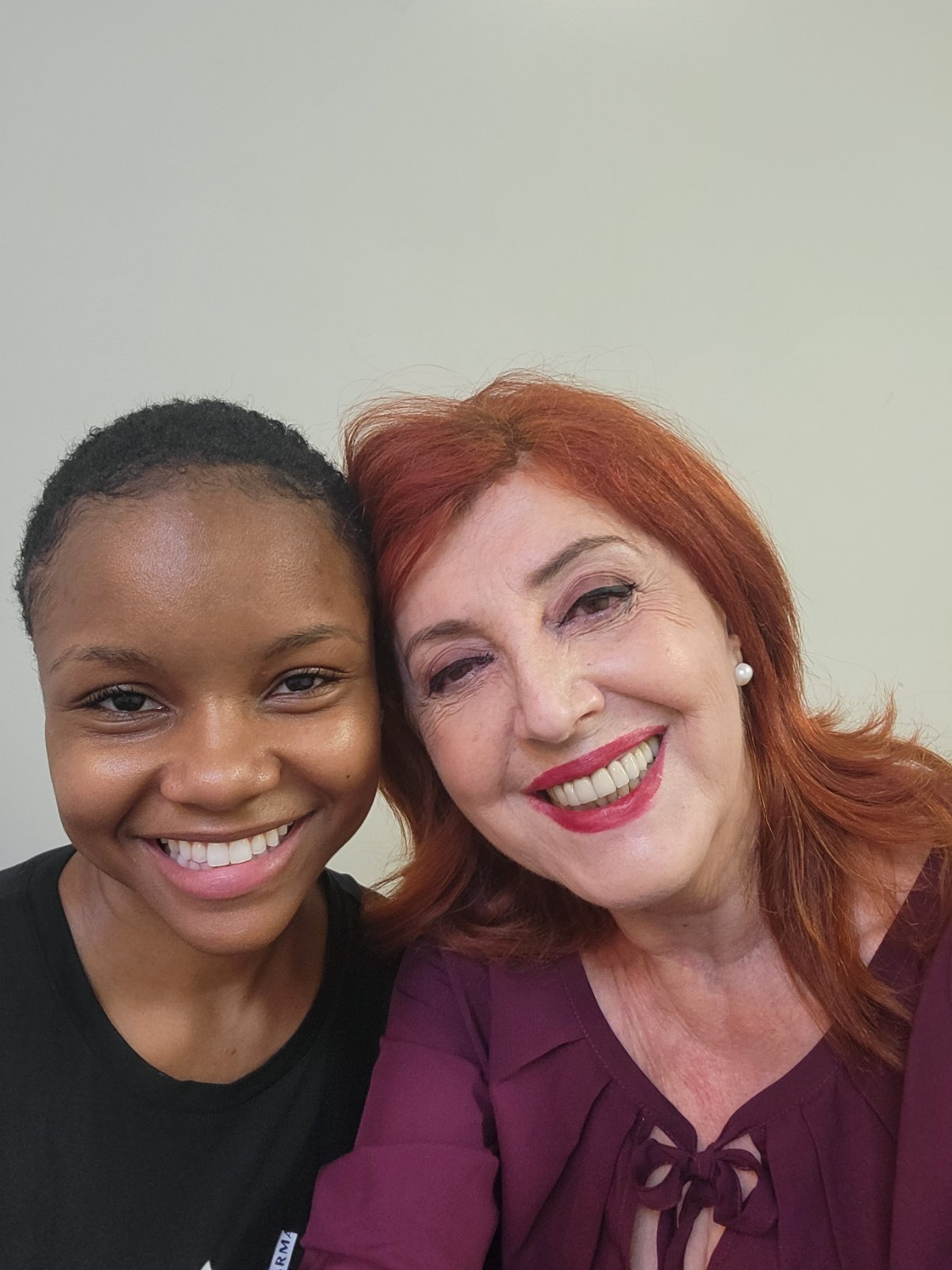
A lot of my students admit that acting technique has helped them in their professional careers in other walks of life: as lawyers, business people, psychologists, teachers, etc.
On the other hand, each professional actor needs to go back to the fundamental acting technique practices in order to stimulate stage work on their own selves. It is of particular importance to do this now, after the two years of isolation.
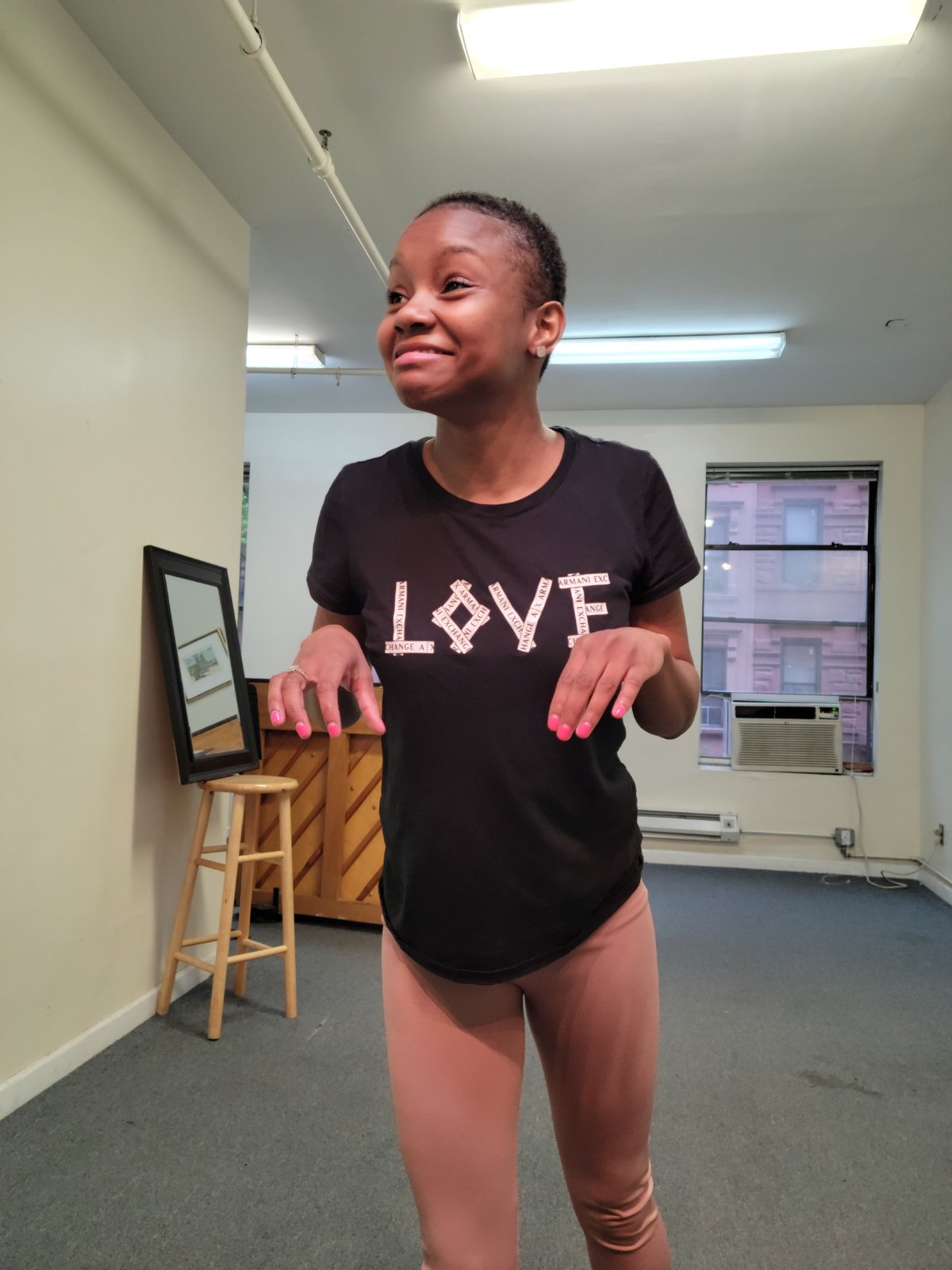
Meeting my students in person was exciting, friendly, enjoyable and greatly successful. We are going on with the classes at Eva Volitzer Actor’s Studio’ looking forward to your attendance, dear friends.
Konstantin Sergeevich Stanislavski is the creator of the science of Acting Skill. His genius achievements in the nature of Acting Art are defined by the fundamental thesis: from the conscious mastership on acting technique to the
subconscious use of human nature.
This essencial definition is the basis for upgrading the actor’s skills in order to develop a creative path in building up a stage character.
To master acting skills is a complex process founded on the science created by Stanislavski. This process is of crucial importance for the tutor! I had the opportunity to learn Acting Skills from Prof. Zhelcho Mandadzhiev, one of the best professors in acting. Our course of students was one of the last in his career as a teacher.
Zhelcho Mandadzhiev had studied theater direction in Moscow in the last directorial class of Prof. Gorchakov who was one of the closest co-workers of Stanislavski.
Prof. Goncharov, an actor and director at Studio 3 in MAT (Moscow Art Theater), worked close to Stanislavski. Later, he created and managed Moscow Drama Theater, was the artistic manager of Moscow Theater of Satire and a professor at The Theater Institute. In 1950, Prof. Goncharov published the book ‘Stanislavski’s Directorial Lessons’. Our Prof. Mandadzhiev was a student of Prof. Goncharov and we, his students, had the opportunity to study along the direct paths in Konstantin Stanislavski’s acting lessons!
Stage action, emotional memory, work with physical activities, relaxation from excess muscle tension were practices and skills which we, the students in acting, learned along the direct path of Stanislavski-Gorchakov-Mandadgzhiev. The direct path to Stanislavski has formed me as an actress, a theater director and a tutor.
Yours, Eva
The first rule which Chekhov breaks with his dramaturgy is that now the action is no longer centered around the destiny of a single protagonist.
The action is so structured that throughout the play the attention centers around one or other of the characters. In Act One of The Seagull, the center of attention is Treplev with his defiance of routine art, at another moment the attention centers on Masha when she professes to Dorn her love for Treplev. Yet again our attention shifts, this time to Nina, who is dreaming of artistic acclaim and the limelight of the stage. Then Trigorin becomes the focal point when sharing his thoughts about the arduous plight of the write, and so on.
By putting an end to the monopoly of the single protagonist, Chekhov establishes new connecting devices in the structure of his plays. This is the highest achievement of the 20th century theater in general.
A second rule which is negated by Chekov’s plays is the rule that the structure is defined by a single main event or conflict. The decentralized events and the stretched plot divide the play into many centers.
Chekhov abandons the rule according to which one single important feature should determine the behavior of each character. He creates complex characters and each one has different voices and inner conflicts.
A very important element in Chekhov’s plays is the symbolic image. The central symbolic image unifies The Seagull, which has neither a central character nor a central event.
The symbolic image of the seagull, in the play by the same name, is the driving force of the plot.
The lake is also a symbolic image and so is the improvised theater. It takes on different nuances of presence, at times serene and beautiful, at times choppy with billowing black waves, embodying Nina’s connection with the Lake. The Lake in The Seagull stands for more than just part of the scenery.
Mood is of special importance in Chekov’s plays for it sets the emotional and psychological atmosphere.
Transcending the borders of genres is also an innovation which Chekhov implements in his plays. It is difficult to draw the line between comedy, drama and tragedy. Chekhov defines The Seagull as a comedy, but it is interspersed with tragic events.
We can talk forever about Chekhov’s work and about The Seagull, but it is time that we get down to some practical work which is reading and analyzing the scenes.
This October starts a 5 Weeks Acting Class on Chekhov. You can read more here.
Yours, Eva
Anton Pavlovich Chekhov is one of the creators of the modern drama, associated with the development of the method of Konstantin Stanislavsky popular throughout the theater world. The method requires actors to be psychologically authentic in the characters, but also actors who, in addition to embodying, can be internally flexible, easily pass into various emotional expressions, to create an atmosphere saturated with symbols and signs.
Even today, the characters in Chekhov’s plays are a creative challenge for every actor to play. I work with my students on scenes from Chekhov’s plays, scenes from his vaudevilles, and also on the transformation of Chekhov’s stories into small dramatic scenes.
Many times I have worked on scenes from ” The Seagull” and “Three Sisters”. Several times I have staged small plays such as “The Bear”, “The Proposal”, “The Jubilee”, which are played with great pleasure by the actors and are strongly applauded by the audience.
Anton Chekhov’s plays have a distinctly modern feel to them, with the complex battles his characters face in their personal and creative lives.
Take the Seagull, for example. This is the play that opens the Moscow Art Theater. It is so new as a genre, it breaks traditions, that at first it was difficult for the audience to perceive, until it became an absolute triumph of the new modern drama.
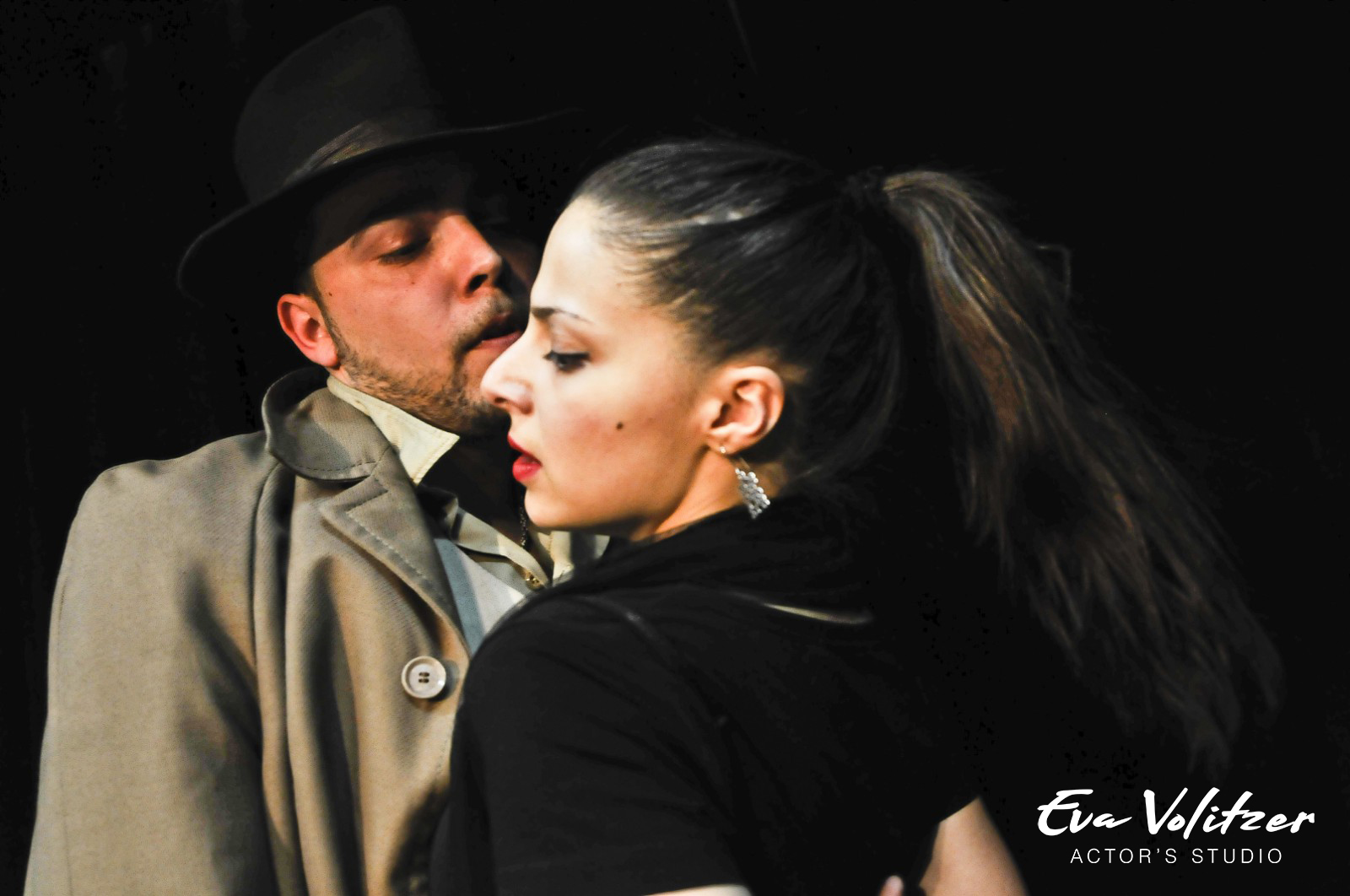
What is innovative in Chekhov’s play The Seagull:
The first rule which Chekhov breaks with his dramaturgy is that now the action is no longer centered around the destiny of a single protagonist. The action is so structured that throughout the play the attention centers around one or other of the characters.
In Act One of The Seagull, the center of attention is Treplev with his defiance of routine art, at another moment the attention centers on Masha when she professes to Dorn her love for Treplev. Yet again our attention shifts, this time to Nina, who is dreaming of artistic acclaim and the limelight of the stage. Then Trigorin becomes the focal point when sharing his thoughts about the arduous plight of the writer, and so on.
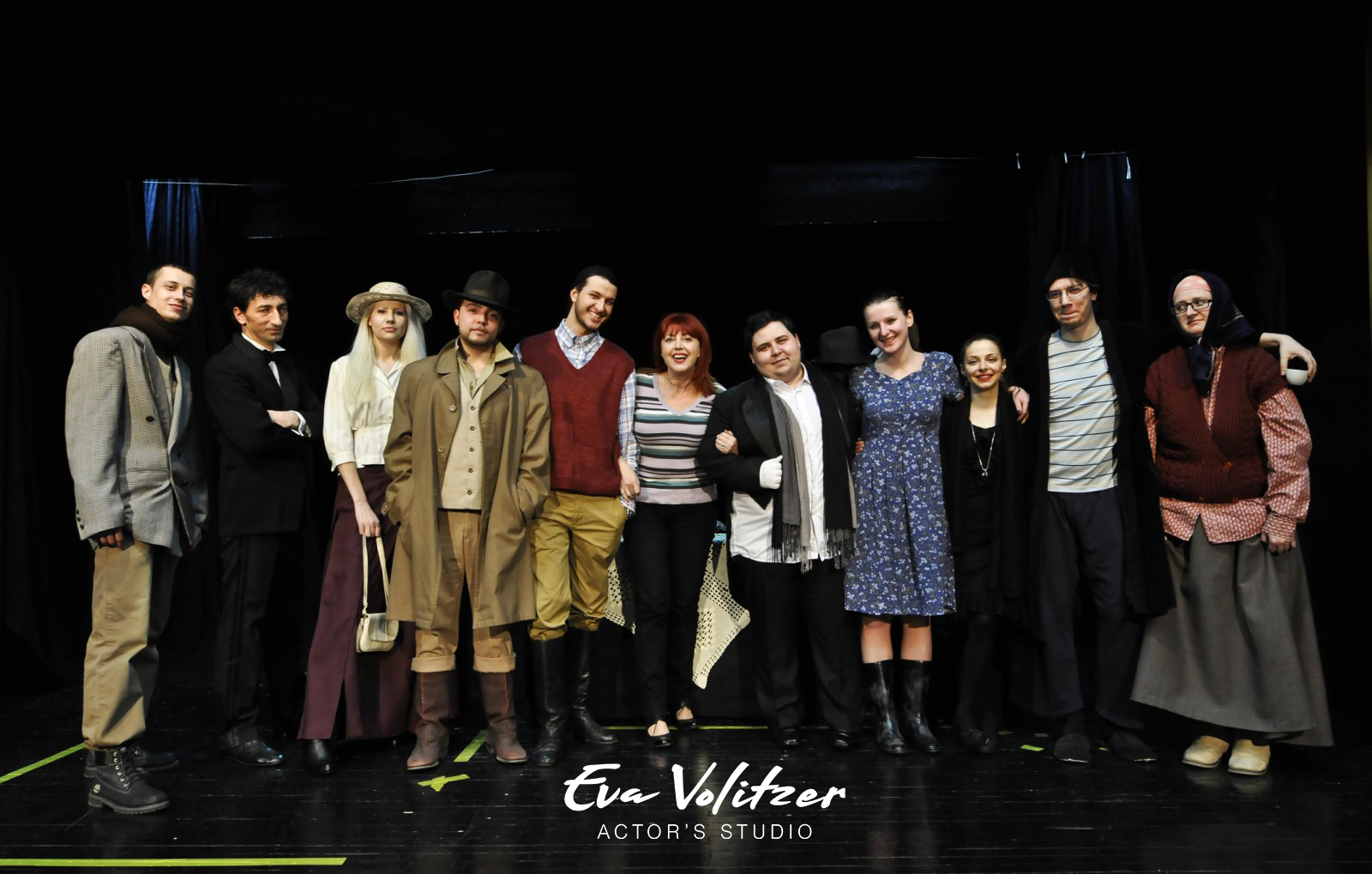
By putting an end to the monopoly of the single protagonist, Chekhov establishes new connecting devices in the structure of his plays. This is the highest achievement of the 20th century theater in general.
A second rule which is negated by Chekov’s plays is the rule that the structure is defined by a single main event or conflict. The decentralized events and the stretched plot devide the play into many centers.
Chekhov abandons the rule according to which one single important feature should determine the behavior of each character. He creates complex characters and each one has different voices and inner conflicts.
A very important element in Chekhov’s plays is the symbolic image. The central symbolic image unifies The Seagull, which has neither a central character nor a central event. The symbolic image of the seagull, in the play by the same name, is the driving force of the plot. The lake is also a symbolic image and so is the improvised theater. It takes on different nuances of presence, at times serene and beautiful, at times choppy with billowing black waves, embodying Nina’s connection with the Lake. The Lake in The Seagull stands for more than just part of the scenery.
Mood is of special importance in Chekov’s plays for it sets the emotional and psychological atmosphere.
Transcending the borders of genres is also an innovation which Chekhov implements in his plays. It is difficult to draw the line between comedy, drama and tragedy. Chekhov defines The Seagull as a comedy, but it is interspersed with tragic events.
I have serious expertise on Chekhov and many years of work with students on the analysis of the plays and the characters.
In the upcoming blog post I will discuss the scenes of Treplev and Nina, Arkadina and Trigorin from “The Seagull”.
And soon we will have a course on scenes from the play “Seagull”. Stay tuned!
Yours,
Eva
Yesterday I was invited to an informal reading of a new play. The host is a famous playwright. He had invited actors and a small audience to his artistic apartment.
The actors were sitting in chairs across from the audience, who were sitting on the couch. There were five actors and one of them was reading the remarks of the play. Each of the actors had the text of the play with underlined lines of the character he had to portrayed. Everyone was very focused on the text before the reading started.
My students: exercise in an interaction with a partner
Just in time, the reading of the play began. The actors, although reading their lines, managed to create vivid nuances of their characters. In the given circumstances of the roles, they communicated convincingly with each other, listened and evaluated the partner. The play, a poetic comedy, provided opportunities for interacting with the audience. The actors partnered convincingly with each other and sometimes sought contact with us, the audience.
The actors, sitting on the chairs, created lively, interesting and appealing characters.
We applauded, and after a short break for a glass of wine, we discussed the new play.
I asked the actors how long they had been rehearsing before reading. They replied, “We haven’t met, we haven’t rehearsed together!” The author sent the text to each one of them with the assigned characters. They prepared alone before the reading and here is the result!
Then I thought again about how important the preparation of the actor is, how important is the ability to communicate on stage, the ability to listen and understand what the partner is saying. What we say on stage is important, but even more important is what the partner is saying.
The acting technique I teach includes theory and many practices in mastering the process of communication between partners. It is a process with established steps that build acting qualities which makes the communication with the partner on stage more convincing.
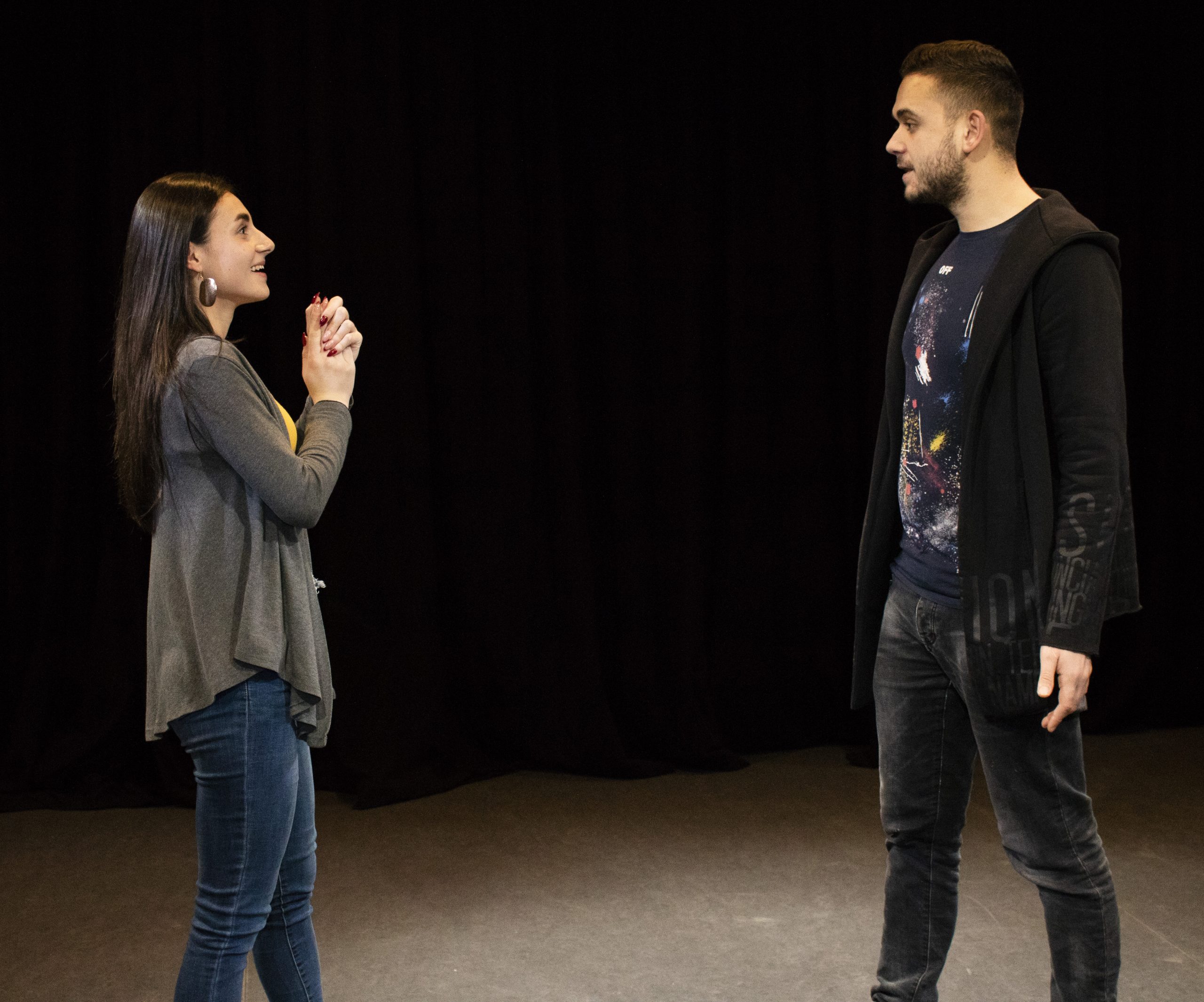 My students: exercise in an interaction with a partner
My students: exercise in an interaction with a partner
Of course, here I give an example with a reading of a play. If we prepare a performance, we will do the appropriate number of rehearsals. We will start with a script analysis and we will build relationships and characters on stage.
In this case, I emphasize the qualities of the actors who had prepared at home and their ability to interact convincingly with each other, presenting a dramatic text.
Yours, Eva
Acting techniques are important for both professional actors and anyone who wants to enrich and develop personal qualities.
For professional actors, refreshing acting skills is an important part of developing acting skills and keep them sharp. When an actor has been absent from the stage for a long time, returning and practicing the elements of acting technique is a good investment in the development of his professionalism.
Just as ballet dancers practice exercises every day to maintain body flexibility, musicians play etudes for perfecting a particular musical skill, artists draw sketches, so does the actor practicing elements of acting technique who will help him develop his imagination, the ability to work with emotional memory, to enhance concentration, to exercise muscle control, etc. Interaction with the partner is an essential part of the acting techniques.
Acting technique is also for everyone who is not a professional actor, but wants to master the elements of this technique, to develop qualities that stimulate the growth of the personality. On stage we ask ourselves questions such as “what am I doing”, “what is my goal”, “why am I doing a certain action” in order to gain confidence in the image, we can easily use that approach in order to construct different projects in our lives.
The ability to expand our imagination, to increase concentration, the ability to communicate, listen and understand what the partner says, to show emotional understanding of others, to influence – all these qualities are exercised through the acting technique.
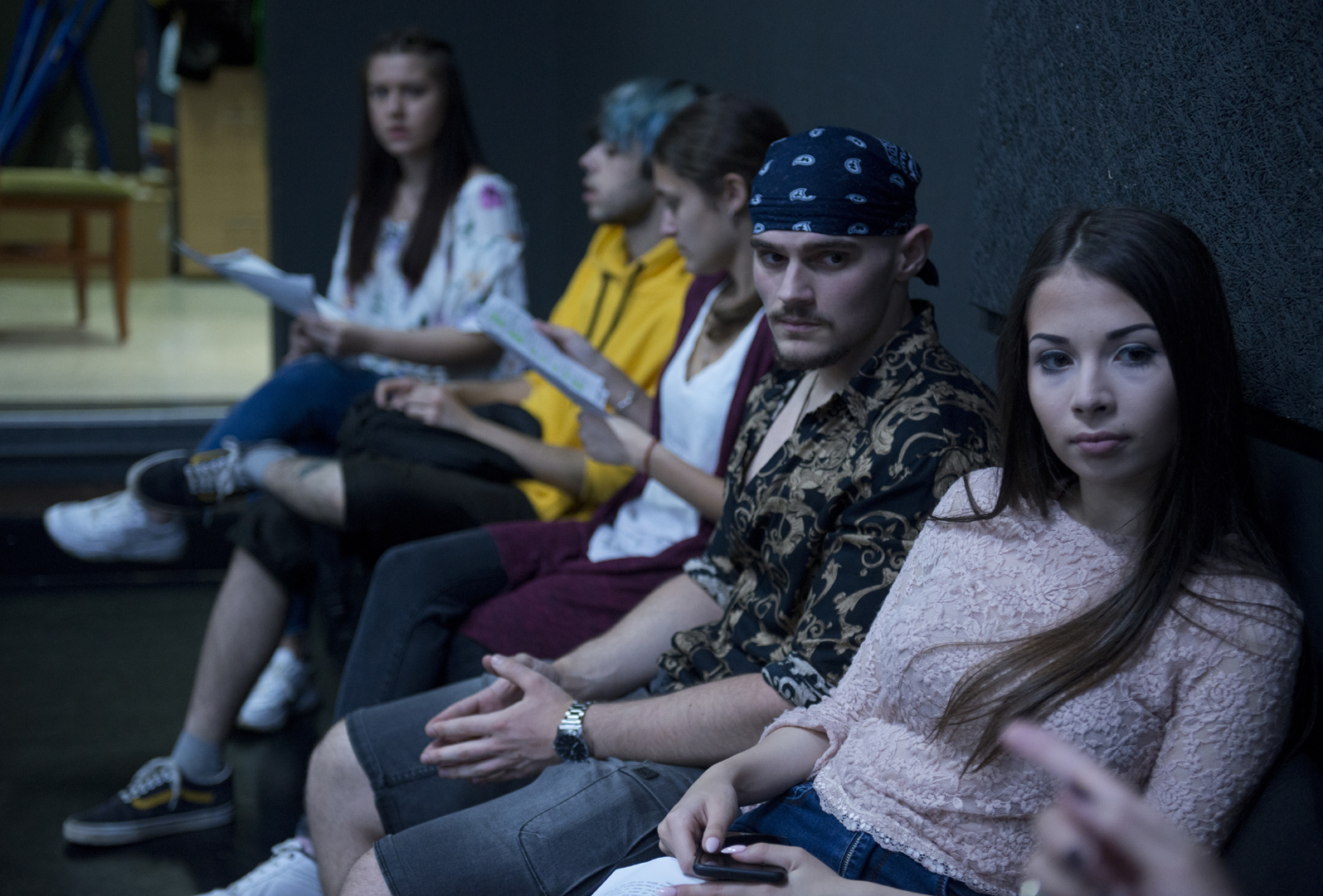 Courage and confident presence in public performances are also important qualities that are built through acting technique and can help in real life.
Courage and confident presence in public performances are also important qualities that are built through acting technique and can help in real life.
Yours Eva




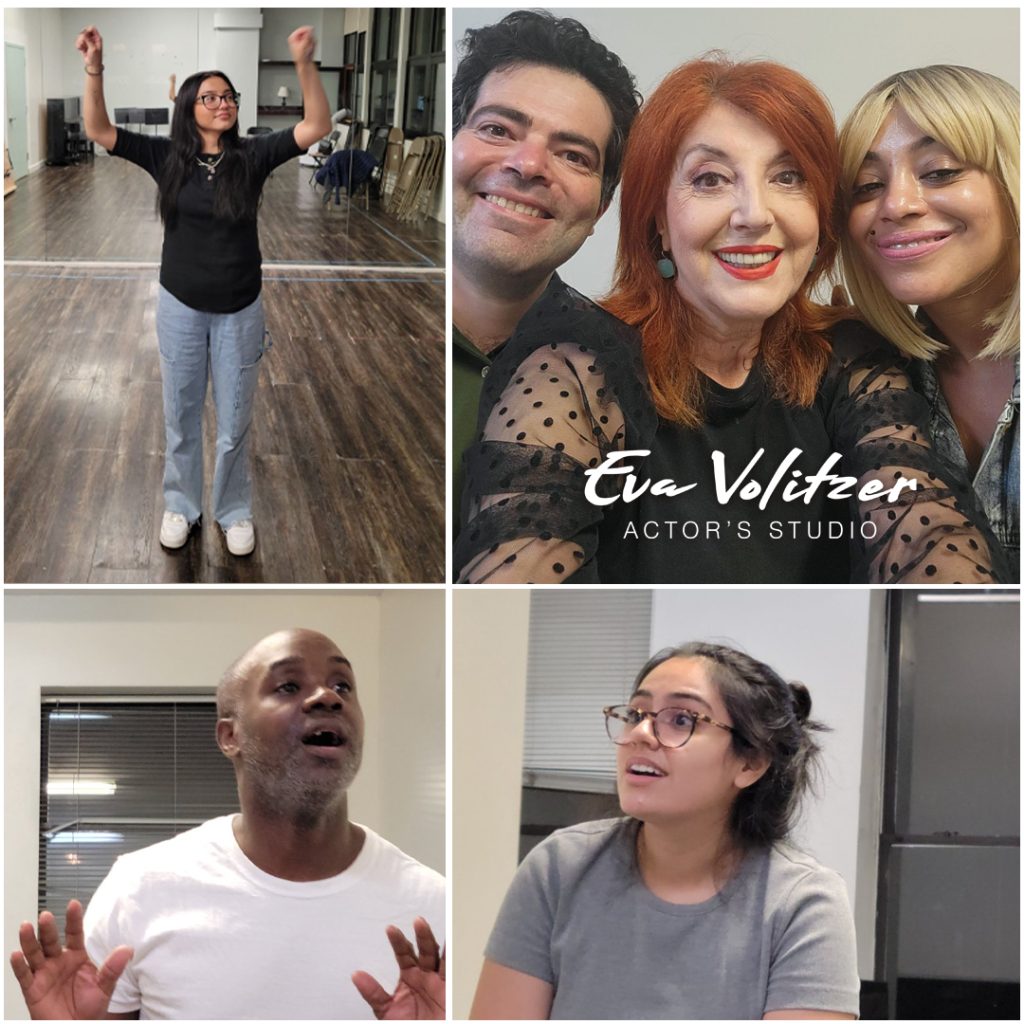






 Some of the participants were so overcome by the acting practices that they entered for the course again. With them we performed a short scene by Neil Simon as well as the comedy ‘Bear’ by A. Chekhov.
Some of the participants were so overcome by the acting practices that they entered for the course again. With them we performed a short scene by Neil Simon as well as the comedy ‘Bear’ by A. Chekhov.




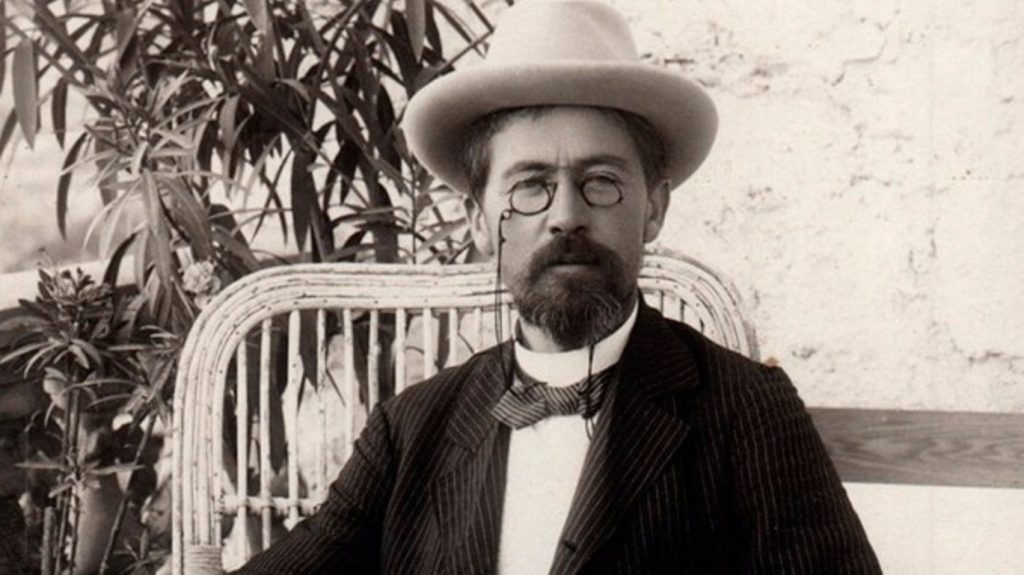
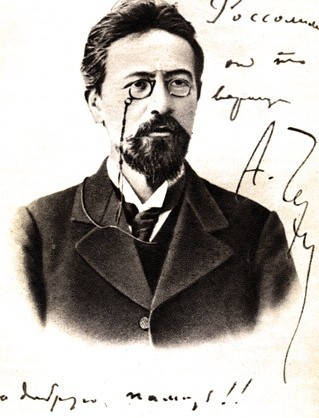


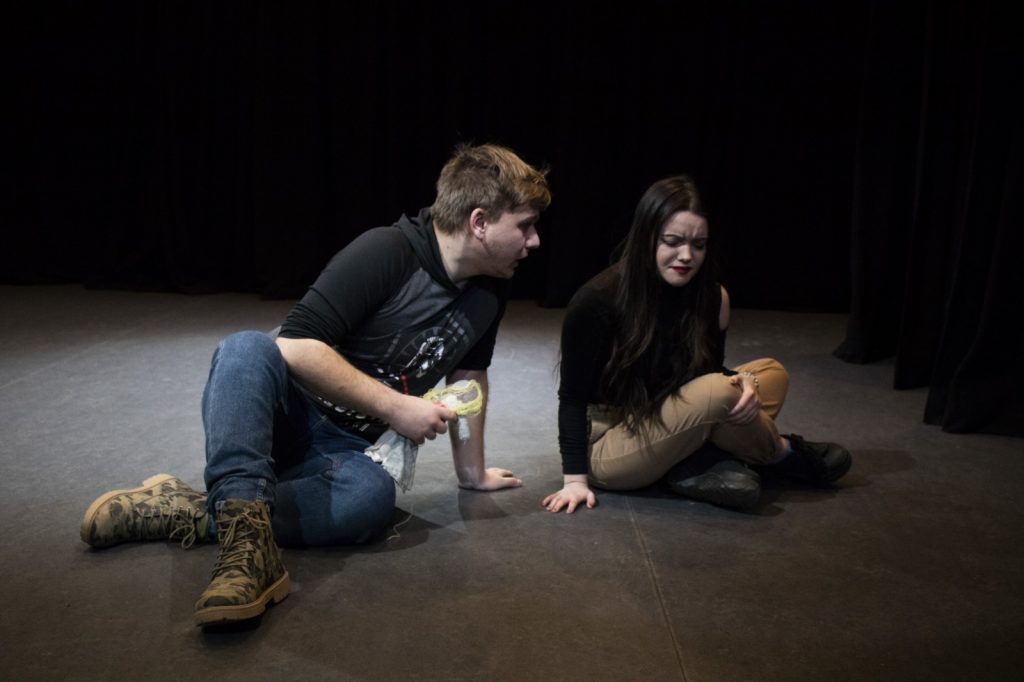

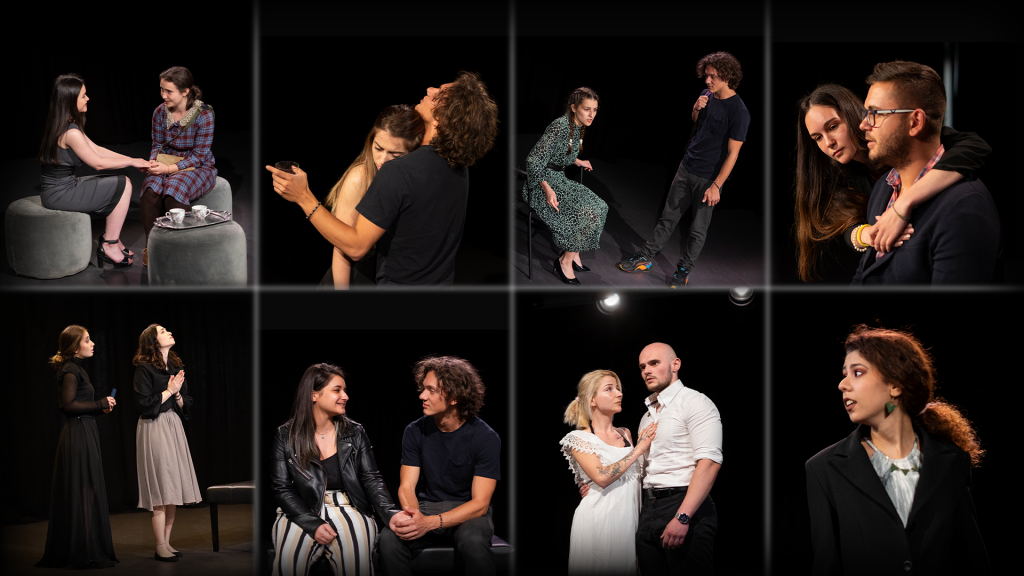
 Courage and confident presence in public performances are also important qualities that are built through acting technique and can help in real life.
Courage and confident presence in public performances are also important qualities that are built through acting technique and can help in real life.